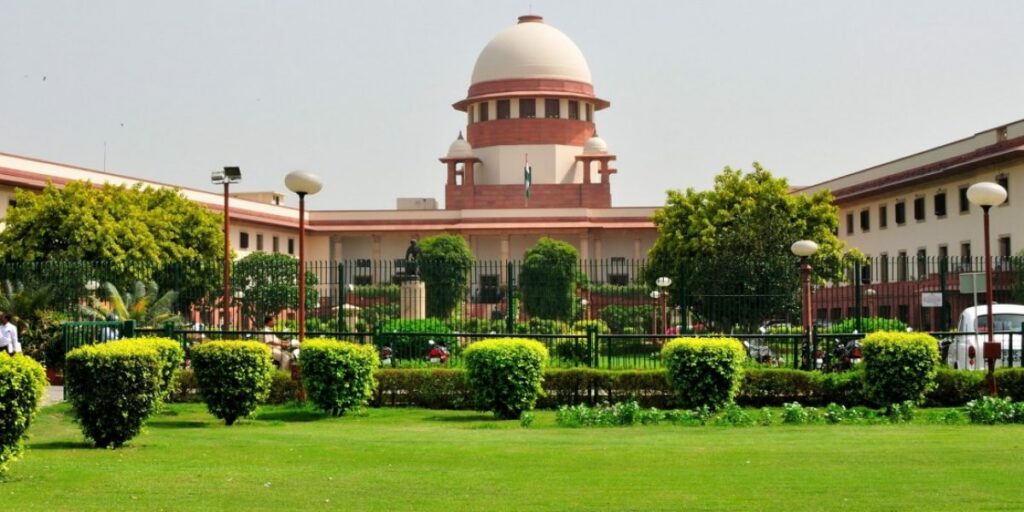NEW DELHI, July 13: The Supreme Court on Wednesday refused to issue a blanket ban on all demolitions across states after the government claimed that there was no link between communal riots and demolition of illegal constructions and refuted the allegation that a particular community was being targeted for demolition.
The court maintained that passing a blanket order banning demolitions across states would curtail the rights of municipal authorities. The court made the observation while hearing a petition by Muslim body Jamiat Ulama-i-Hind against demolition exercises that, it has alleged, specifically targeted members of the minority community.
The Supreme Court had issued a notice to the Uttar Pradesh government in this connection. In its reply to the court, the state government has maintained that the demolition drives were routine exercises to remove encroachment. The court has now sought the replies of Madhya Pradesh and Gujarat governments where recent demolitions have drawn criticism.
Advocates Dushyant Dave and CU Singh, appearing for Jamiat-Ulama-i-Hind, said authorities were “picking and choosing” and demolishing homes of people from the “other community.” The petitioner said “taking advantage” of municipal corporations to demolish homes was not right. The petitioner’s counsel also said there was a “pattern of demolitions” across the country “after every communal incident. This is against the structure of democracy, not good for us as a society,” they said.
Responding to the arguments, Solicitor General Tushar Mehta and Senior Advocate Harish Salve who represented the UP government said there was no “other community” as pointed out by the petitioner and “all communities are Indian communities.” They stressed that there was no connection between the demolitions and rioting, and that the anti-encroachment exercises started long before the riots. They said “unnecessary sensational hype” must not be created.
But Dave, for petitioner Jamiat Ulama-i-Hind, said the court should view the problem from a larger perspective. The country was facing an “extraordinarily serious” situation. Justice was being delivered by the arms of the bulldozer. Rule of law lay in the debris. Powerful State governments and its functionaries were taking advantage of municipal laws to “wreck vengeance” by using bulldozers to demolish the private homes and buildings of people whom they believed were behind communal violence and riots. “We do not want this culture. Instead of following the rule of law, they take advantage of the municipal laws to demolish houses,” the senior lawyer said.a
Urging the court to not impose a blanket ban on demolitions, they said the “rule of law needs to be followed”. “Not every riot accused can be protected from demolitions under a blanket order,” the UP government counsel said. “Nobody can dispute that rule of law cannot be ignored… But can an omnibus order be passed against demolitions… When in cases where authorities are rightly entitled to take action, will such an omnibus order stand in their way,” a Bench led by Justices B.R. Gavai and P.S. Narasimha asked, posting the case for detailed hearing on August 10.
The Uttar Pradesh government had come under criticism after it razed the home of Javed Mohammed, the main accused in the violence in Prayagraj over suspended BJP leader Nupur Sharma’s remarks on Prophet Muhammad. The bulldozer rolled in within hours after a notice was stuck outside the local politician’s house claiming it to be illegal construction. While the government has claimed that Mohammed had not replied to earlier notices, the family has said they did not receive any. The state has stressed that the demolitions in Uttar Pradesh were lawful and action against rioters is being taken under separate laws.
(Manas Dasgupta)

